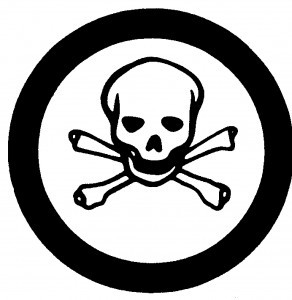Always bear in mind that medications are the most prevalent cause of poisoning and responsible for most cases. There are also other potential causes of poisoning that can lead to mild to severe poisoning. It is important that you are familiar with the potential causes so that you are prepared with what to do.
Medications
The medications that are more likely to be linked to poisoning include the following:
- Aspirin
- Paracetamol
- Beta-blockers
- Tricyclic antidepressants
- Selective serotonin reuptake inhibitors (SSRIs)
- Benzodiazepines

Drinking large amounts of alcohol in just a short span of time can also lead to alcohol poisoning. - Calcium-channel blockers
- Opioids
Always bear in mind that all medications have the potential to be harmful if taken in large doses or take by an individual who was has not been prescribed to use them.
Household products
Household products are also one of the common causes of poisoning which includes the following:
- Cleansing products such as caustic soda, bleach and disinfectants
- Garden products such as rat poison and weed killers
- Cosmetics such as shampoo, baby oil and nail polish remover
- DIY materials such as glue, paint and wallpaper adhesive
Carbon monoxide
Carbon monoxide is an odorless, poisonous gas generated by incomplete burning of fuels such as wood, gas or petrol. Take note that these types of fuels are utilized in various household appliances such as cookers and heaters.
In case appliances are not regularly maintained, carbon monoxide can leak out and capable of causing loss of consciousness and even death.
Alcohol and food
Always bear in mind that food can sometimes cause food poisoning if it is ridden with mold, contaminated with bacteria or was not prepared or cooked properly. Drinking large amounts of alcohol in just a short span of time can also lead to alcohol poisoning.
Who are at risk for poisoning?
Poisoning can affect anyone at any age, but young children below 5 years old who are able to walk face the highest risk. This is due to the fact that they often place objects in their mouths without realizing they are harmful.
In addition, since their bodies are smaller, they are more vulnerable to the detrimental effects of certain substances. The common substances involved in most cases of poisoning in children include the following:
- Cosmetics
- Pain medications
- Cleaning products
- Cough and cold medications
- Foreign bodies such as batteries or small coins
- Medications in lotion, cream or ointment form
- Antibiotics
- Plants
- Vitamin supplements
Even older children and adults who have self-harm intentions might intentionally poison themselves.
Snakes and insects
It is important to note that snakes and insects such as bees and wasps are not poisonous but capable of injecting venom into the skin once they bite or sting. The severity of the bite or sting from insects or snakes usually depends on the quantity of venom that was injected and if the individual is highly sensitive or allergic.

